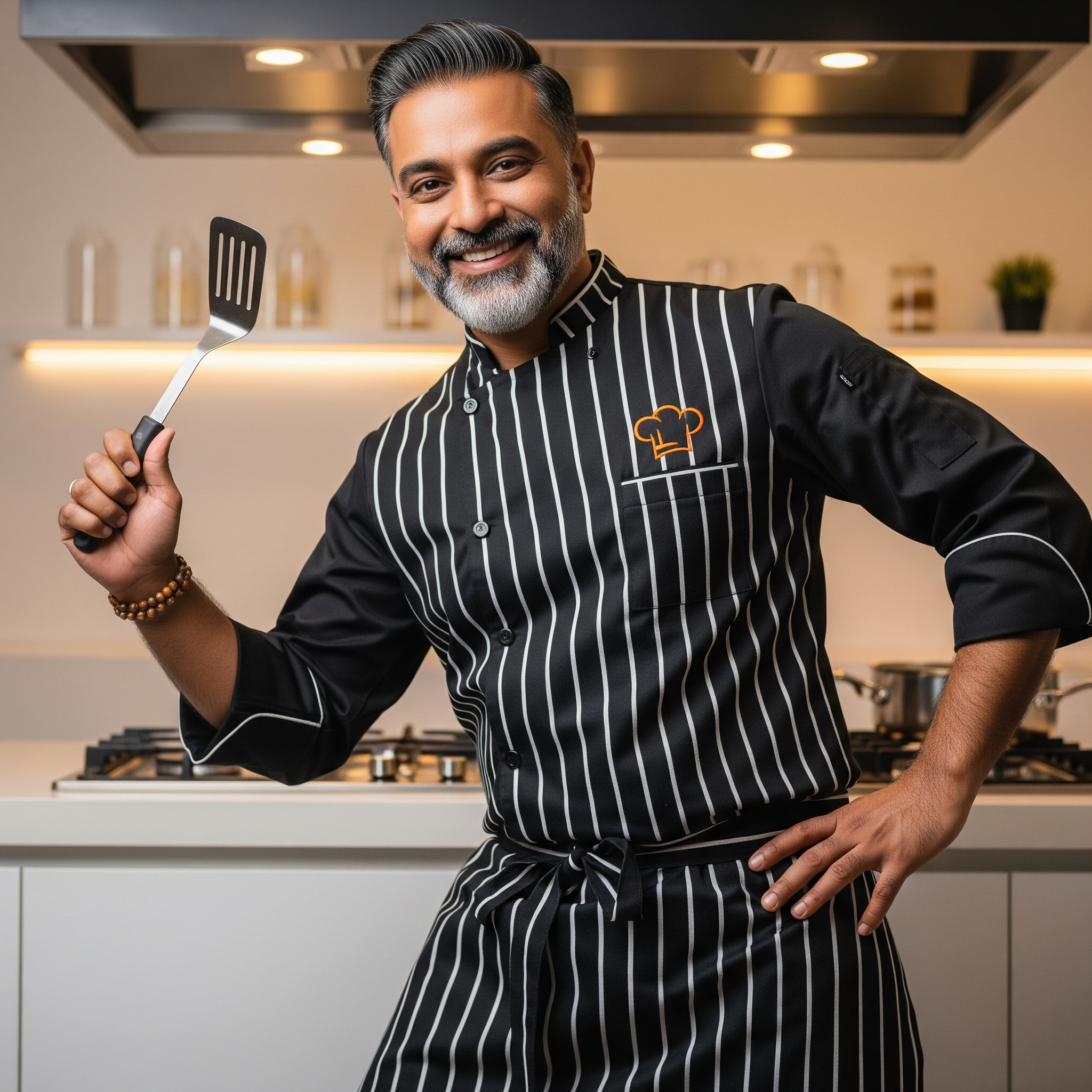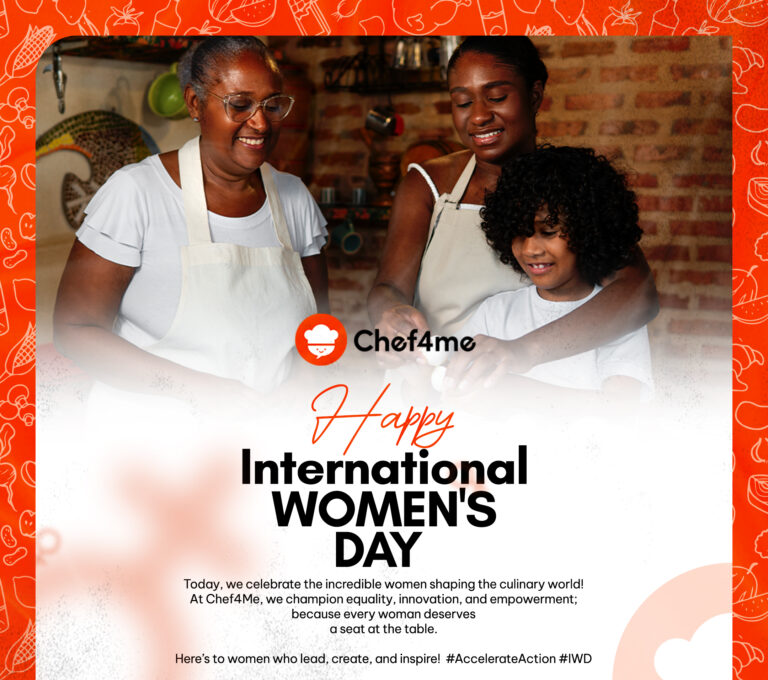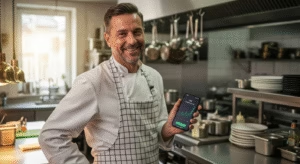Throughout history, women have played a defining role in shaping culinary traditions, introducing new flavors, and revolutionizing the way we experience food. Despite their undeniable influence, many of these women were overlooked in the broader culinary narrative. As we celebrate International Women’s Day, it is important to honor the trailblazing women—both past and present—who have left an indelible mark on the food industry. From kitchens in Africa to fine dining establishments in Europe and America, these women have defied norms and inspired generations.
The Pioneers Who Changed the Culinary Landscape
1. Essie Spice (Ghana) – Blending African and Global Flavors
Essie Bartels, popularly known as Essie Spice, has transformed West African flavors into globally recognized culinary delights. As a food entrepreneur and spice connoisseur, she blends traditional Ghanaian spices with international influences, creating sauces and seasonings that have gained recognition worldwide. Her brand, Essie Spice, embodies the richness of African cuisine and challenges the stereotype that African food is limited in variety and complexity.
2. Maguelonne Toussaint-Samat (France) – The Historian of Food
A French culinary historian and writer, Maguelonne Toussaint-Samat’s works have deeply influenced how we understand food history. Her book, A History of Food, is a comprehensive look at the origins of culinary traditions worldwide, shedding light on the role of women in the evolution of food culture. Her contributions have been instrumental in recognizing women’s impact on global cuisine.
3. Chef Rougui Dia (Senegal/France) – Breaking Barriers in Fine Dining
Rougui Dia, a French-Senegalese chef, made history as one of the few Black women to lead a Michelin-starred kitchen in Paris. Her mastery of French haute cuisine, infused with African influences, has challenged traditional notions of fine dining. Dia’s success is a testament to the power of cultural fusion in gastronomy and the importance of diversity in high-end cuisine.
4. Edna Lewis (USA) – The Queen of Southern Cooking
Edna Lewis was an African American chef and author who preserved the legacy of Southern cuisine. Through her books, such as The Taste of Country Cooking, she documented traditional African American recipes, elevating soul food to a respected and celebrated cuisine. Her work helped redefine the narrative around Southern food, highlighting its cultural depth and history.
5. Chef Fatmata Binta (Sierra Leone) – Championing Fulani Cuisine
Fatmata Binta, a Sierra Leonean chef, has gained international acclaim for her work in promoting Fulani cuisine. She launched the Dine on a Mat experience, a pop-up dining initiative that educates people about the nomadic Fulani people and their culinary traditions. Through her efforts, she has brought global attention to African food heritage, demonstrating the richness and depth of West African cuisine.
6. Cristeta Comerford (Philippines/USA) – First Female White House Executive Chef
Cristeta Comerford made history as the first woman and first Asian American to serve as the White House Executive Chef. Since 2005, she has overseen meals for U.S. presidents, blending nutrition, innovation, and cultural diversity in her culinary creations. Her leadership in one of the most prestigious kitchens in the world has paved the way for aspiring female chefs globally.
7. Chef Nokx Majozi (South Africa) – Elevating African Cuisine in London
Nokuthula Majozi, known as Nokx, is a South African chef redefining African cuisine in the UK. As a head chef at The Ned in London, she brings African flavors to fine dining, challenging the Eurocentric dominance in the culinary world. Her success highlights the global appreciation of African ingredients and techniques.
8. Chef Funmi Dele-Giwa (Nigeria) – Innovating Nigerian Fine Dining

Funmi Dele-Giwa is a Nigerian chef and culinary entrepreneur who has been at the forefront of modernizing Nigerian cuisine for fine dining experiences. Through her brand, Longévité, she creates gourmet Nigerian dishes with a contemporary twist, introducing international audiences to the depth and sophistication of West African flavors.
9. Ozoz Sokoh (Nigeria) – The Culinary Anthropologist

Ozoz Sokoh, known as Kitchen Butterfly, is a dedicated Nigerian food historian and culinary storyteller committed to preserving Nigerian food heritage. Her extensive work highlights indigenous ingredients, forgotten recipes, and the profound connections between Nigerian cuisine and the broader African diaspora. Through her platform, she has become a vital voice in documenting and reviving West African culinary traditions.
10. Bukie Akinmade (Nigeria) – Celebrating Nigerian Street Food
Bukie Akinmade is a Nigerian chef and food influencer dedicated to elevating Nigerian street food. Through her platform, she showcases local delicacies such as suya, akara, and puff-puff, proving that street food holds as much culinary value as gourmet dishes.
The Impact of Women in Culinary Innovation
Women in the food industry have not only created exceptional dishes but have also pioneered new business models, food trends, and social movements. They have been key players in the farm-to-table movement, sustainable food practices, and culinary education. Whether through documenting traditional recipes, opening restaurants, or launching food brands, these women have expanded the scope of what is possible in the culinary world.
Supporting Women in the Culinary Industry
While women have made remarkable strides in the food industry, challenges such as gender bias, unequal pay, and limited access to investment still exist. Supporting women in culinary spaces means:
- Dining at women-owned restaurants and food businesses
- Purchasing from women-led food brands
- Mentoring and investing in female culinary entrepreneurs
- Amplifying their voices on social media and in culinary discussions
The contributions of women in the culinary world are vast and immeasurable. From preserving cultural traditions to redefining fine dining, these trailblazing women have transformed the global food scene. As we celebrate International Women’s Day, let us recognize and honor their efforts, ensuring that the next generation of female chefs, food entrepreneurs, and culinary leaders continue to thrive and break barriers.
Celebrating Women-Owned Food Businesses: Empowering Change Through Culinary Entrepreneurship
Women have long played a crucial role in the culinary world, shaping food culture, innovating flavors, and redefining the industry through entrepreneurship. Across the globe, women-owned food businesses are not only providing delicious meals but also fostering community, promoting sustainability, and challenging gender norms in a historically male-dominated field. This International Women’s Day, we celebrate the resilience, creativity, and impact of women-led food enterprises.
The Rise of Women-Owned Food Businesses
From bustling street food vendors to Michelin-starred restaurateurs, women are leaving their mark on the culinary landscape. Their businesses span a wide range of industries, including restaurants, bakeries, food product brands, catering services, and sustainable farming initiatives. These enterprises are not just about food; they are platforms for storytelling, cultural preservation, and economic empowerment.
Other Pioneers Who Transformed Culinary Landscapes
1. Hilda Baci (Nigeria) – Record-Breaking Chef and Cultural Ambassador
Hilda Effiong Bassey, known as Hilda Baci, made history in 2023 when she officially broke the Guinness World Record for the longest cooking marathon with an incredible time of 93 hours and 11 minutes. The 26-year-old Nigerian chef, restaurateur, and actress captured global attention during her marathon cooking session in Lagos, which was live-streamed to audiences worldwide. Her record attempt was designed to “truly push my limits and test my abilities” as well as to help “inspire young African women to chase their dreams”. Though her record was later surpassed by Irish chef Alan Fisher with 119 hours and 57 minutes, Baci’s achievement brought unprecedented international spotlight to Nigerian cuisine and demonstrated the power of determination and cultural pride.
2. Asma Khan (UK) – Empowering Women Through Food
Asma Khan, a British-Indian chef, owns the renowned London restaurant Darjeeling Express. What makes her establishment truly exceptional is her all-female kitchen staff, comprised entirely of home cooks who have successfully transitioned into professional chefs. This powerful model showcases women supporting women in the competitive food industry.
3. Janaína Torres (Brazil) – The World’s Best Female Chef 2024
Janaína Torres, chef and co-owner of São Paulo fine dining restaurant A Casa do Porco, was named The World’s Best Female Chef 2024. Born in tenement housing where “everything is shared,” Torres represents a remarkable journey of culinary excellence and cultural celebration. Her innovative approach to Brazilian cuisine has earned international recognition and serves as an inspiration for chefs from diverse backgrounds.
4. Selassie Atadika (Ghana) – Founder of Midunu
Selassie Atadika is the innovative force behind Midunu, a nomadic dining experience celebrating New African Cuisine. Her work brilliantly combines traditional African flavors with modern culinary techniques, promoting the use of indigenous ingredients while supporting local farmers and sustainable food systems.
The Profound Impact of Women in Culinary Innovation
Women in the food industry have created exceptional dishes while pioneering revolutionary business models, influential food trends, and important social movements. They have been instrumental leaders in the farm-to-table movement, sustainable food practices, and comprehensive culinary education. Whether through documenting traditional recipes, opening groundbreaking restaurants, or launching innovative food brands, these women have dramatically expanded the scope of possibilities in the culinary world.
Supporting Women in the Culinary Industry
While women have made remarkable strides in the food industry, significant challenges persist, including gender bias, unequal pay, and limited access to investment capital. Supporting women in culinary spaces requires active commitment through:
- Dining at women-owned restaurants and food businesses
- Purchasing from women-led food brands and products
- Mentoring and investing in female culinary entrepreneurs
- Amplifying their voices on social media and in culinary discussions
- Advocating for equal opportunities and fair compensation
Looking Forward: A Bright Future for Women in Food
The contributions of women in the culinary world are vast and immeasurable. From preserving ancient cultural traditions to redefining modern fine dining, these trailblazing women have fundamentally transformed the global food scene. As we celebrate their achievements, we must ensure that the next generation of female chefs, food entrepreneurs, and culinary leaders continue to thrive, break barriers, and reshape the industry.
These remarkable women remind us that food is more than sustenance—it’s culture, history, innovation, and hope served on a plate. Their legacy continues to inspire and nourish both our bodies and our understanding of what’s possible when passion meets purpose in the kitchen.
Did you enjoy this? Then, you would want to read this- Who really belongs to the kitchen?
Author
-

Jay is a creative and innovative spirit with a flair for coming up with engaging and helpful lifestyle content. On his happy days, he can spend his whole day making sumptuous delicacies while on the anxious days, he sleeps it out.
View all posts







